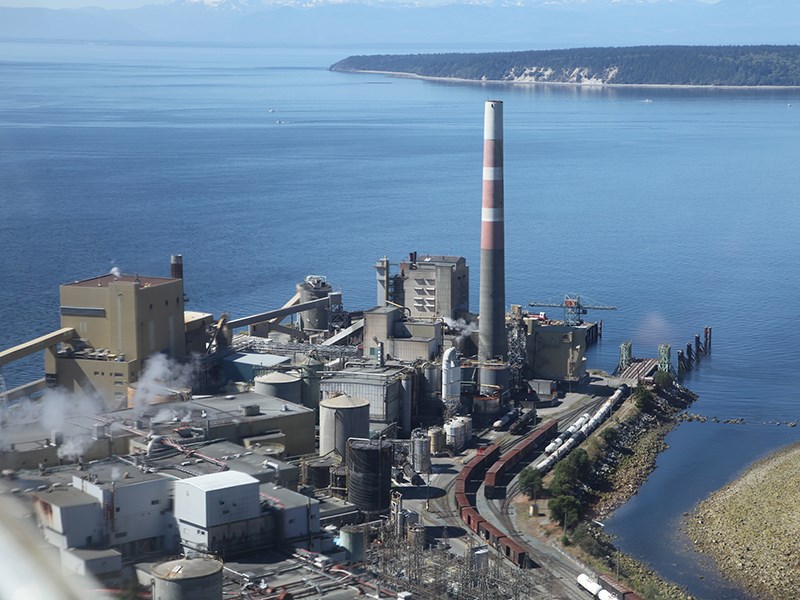I have been following with dismay, the subject articles about the Catalyst Paper Tis’kwat mill’s demise [“Catalyst Paper Tis’kwat mill moves into indefinite curtailment,” February 9].
I was hoping to see more news and/or government comment about this closure and the almost four-decade decline in finished forest product production in Canada, and particularly here in BC.
It seems to me we have more paper-based products in our lives now than I recall when growing up in Powell River in the 1960s, ie: paper towels, napkins, diapers, packaging and computer print-outs, et cetera. And yes, we all still use toilet paper and have local newspapers, with flyers, and yes, newsprint demand is likely down for sure.
While searching online for statistics on paper, pulp and other paper type products, I stumbled upon a bar chart showing the production output of paper and cardboard products in China from 1970 to 2019, and I believe it also said it is now a major exporter of these products. Although the production outputs from China have appeared to plateau in the past few years, they go from 2.4 million tons per year in 1970 to about 125 million tons per year in 2019. The capacity of Powell River’s No. 9, 10 and 11 paper machines was about 0.5 million tons per year.
The decline in the forest industry manufacturing and processing sector has more to do with the extra profit that can be made by processing our raw logs overseas, than a shortage of fibre or reduction in overall demand. The greed for profit, allowed by government regulations on trade and financial sectors, as well as global trade agreements, has resulted in mills being undercapitalized for decades and allowed to become irrelevant and inefficient.
If the founders of the Powell River mill or HR MacMillan were still at the helm, I am sure the mill would have had sufficient capitalization and lumber reserves to retool the machinery and stay relevant in a changing marketplace.
I have lived on Vancouver Island for most of my adult life now. I have watched the ships loading at mill sites and the docks in Nanaimo with raw logs going overseas. I am not an expert on log grades, but the ships are loaded with larger and more uniform logs than I see being trucked on the island to local sawmills.
Something is very wrong here. We are told we have had such great economic growth and prosperity since automation and global “free” trade, so why is it that my parents’ generation could own their own home, car and boat, and give their children a good life on one wage (any pay scale or job at the mill).
I hope journalists will look into these issues and report further, at least for Powell River mill. It’s almost a silent, slow death for many working and middle-class folks in Canada, or at least in BC.
Canada is losing its industrial sovereignty, which weakens our nation and puts us at the mercy of adversaries. If not already there, we soon will reach a point of no return.
Bill Sutherland is a former Powell River resident who lives in Saltair, BC.



